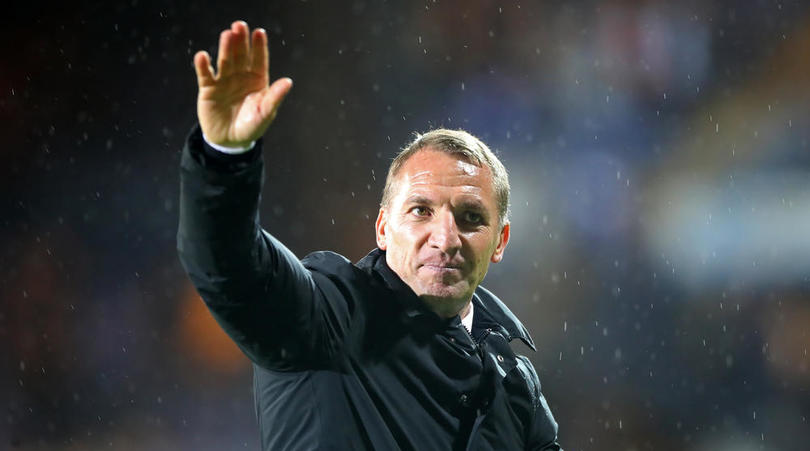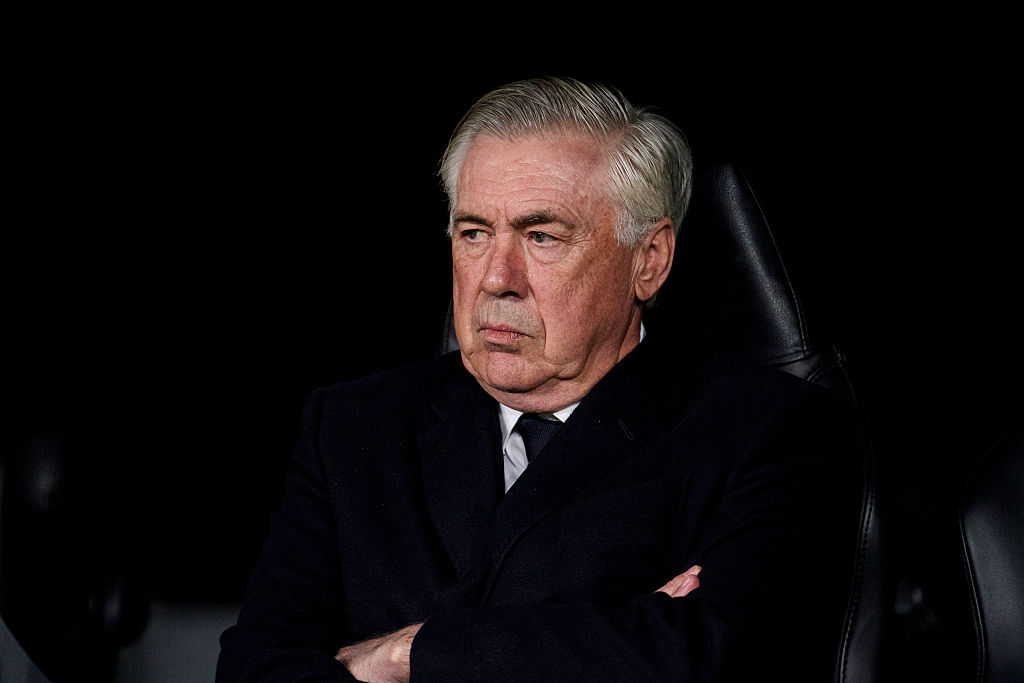Why it might be time to recognise Brendan Rodgers for the elite coach he is
The Leicester boss has impressed at every job he's had – yet self-mythologising and cringe quotes have made him a divisive figure. Will he guide the Foxes back into the Champions League?

As any self-respecting purveyor of sporting cliche knows, it's never a bad idea to keep quiet and let your football do the talking. The problem for Brendan Rodgers is that he has often wanted to let his talking do the talking – which is a shame since, by and large, his football has spoken loudly enough.
For a coach whose career is barely a decade old, Rodgers’ CV isn’t half bad. He has presided over one promotion, one staggeringly good debut top-flight campaign, one freewheeling title charge, one unbeaten league season and back-to-back domestic trebles. Yet throughout, he has continued to serve as a punchline, painted by a substantial cohort as a faintly buffoonish David Brent figure.
Eleven games into the current season, his Leicester side sit third, having played four of the 'Big Six'. Only one team has scored more and no side has conceded fewer. Is British football finally ready to recognise Rodgers as an elite-level coach? In fact, why hasn’t it done so already?
The answer is not straightforward, no matter what some of his harsher detractors would have you believe, although it’s true that he’s often failed to do himself any favours when a microphone has been aimed his way. In today’s culture, it only takes one slip of the tongue – one tiny soundbite lacking in self-awareness – to make you look silly. And it’s fair to say that Rodgers, who as Swansea manager declared it “great that the public here at Sunderland could see us play” after overseeing a 1-0 defeat on Wearside, has given more than just the one.
Open a new tab in your browser now, and you won’t need to look hard to find a smarmy listicle detailing “Brendan’s best quotes”. That fact itself is instructive. Rodgers has had the misfortune to come of age in perfect timing with an online culture whose core currencies are put-downs, piss-takes and memes. During his three years at Liverpool, the number of active Twitter users doubled. The social media age has not always been kind to a man whose account of his evening jogs around the streets of Liverpool, when “the doors are open and the dinners are on and you can smell the mince cooking”, sounded like he was starring in his own Dickens novel.
Much of this, too, is probably tied into the very British instinct to take against someone who talks a good game before they've played one, to knock down the mouthy newcomer a peg or two. Yet the longer Rodgers’ career goes on, the more his words are backed up by his deeds. Take a look at his last four jobs – Swansea, Liverpool, Celtic and his nascent Leicester tenure – and it quickly dawns that each register somewhere between ‘mighty impressive’ and ‘transformatively brilliant’.
What’s more, they have covered near enough the full gamut of remits and expectations. It’s become part of football’s received wisdom that managing a so-called smaller club is incomparable to presiding over a heavyweight – hence why the same rotating cast of coaches get the big jobs while the impressive mid-rankers are overlooked. Rodgers’ model has worked across the board: promotion-chasing minnow, sleeping giant, trophy-hoovering Goliath figure, and now an aspirational upper-middleweight.
Get FourFourTwo Newsletter
The best features, fun and footballing quizzes, straight to your inbox every week.
In each instance he has found a new gear, improved his team beyond expectation and created a side better than the sum of its parts, at least for a time. Young players excel under his watch. Attackers – especially hard-running and bloodthirsty centre-forwards – flourish like never before. Best of all, he has never needed big money to make big progress. Has it just been bad PR holding him back?
Not exactly. His penchant for saying the wrong thing hasn’t just wound up anonymous fans on the internet – it’s had real-world implications too. At least one of his bosses at Anfield was “fighting the urge to call up and tear him a new asshole”, according to one internal missive, after fingers had been pointed at “the money men” over failed signings. Ultimately it was that friction which cost him his employment. Yet even at Liverpool, the least tangibly successful of his last three jobs and one where things went downhill badly towards the end, he put together a sensationally exciting team, nearly won the league, and turned Luis Suarez, Raheem Sterling and Philippe Coutinho into players that would fetch the club around a quarter of a billion pounds.
By that time, of course, his faintly silly Shankly-lite soundbites had made him the star of a million memes, his whitened teeth lighting up the internet as a new breed of online fan began to find its voice. Combine this with a mainstream press that prizes quotes above all else, and you have a strange sporting culture in which managers are judged as much by what they say as what they do. Ironically, given the efforts Rodgers puts into his speechifying, it’s the talking that’s hamstrung him.
Now, though, he seems to have toned down the self-mythologising and, slowly but surely, he’s winning hearts and minds. In the wake of Leicester’s 9-0 demolition of Southampton, Gary Neville said Rodgers might soon find himself in the picture for the English football’s top jobs, including the one Pep Guardiola will sooner or later vacate. Which would be quite the ambition. But then, as a smart man once said: you can live without water for days, but you can’t live for a second without hope.
While you're here, why not take advantage of our brilliant subscribers' offer? Get the game's greatest stories and best journalism direct to your door for only £9.50 every quarter. Cheers!
NOW READ...
COMMENT 5 things the Premier League should do to improve VAR
QUIZ Can you name the 32 players with most touches in the Premier League this season?
GUIDE Premier league live stream best VPN: how to watch every game from anywhere in the world

